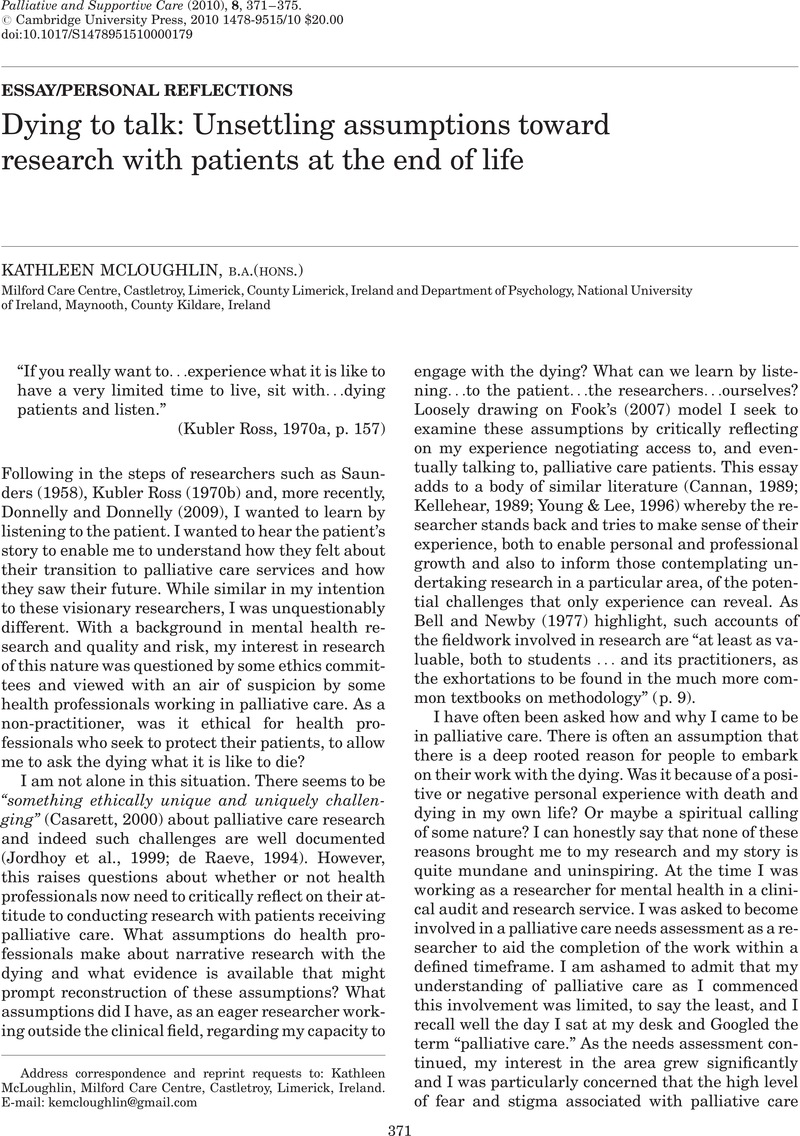Crossref Citations
This article has been cited by the following publications. This list is generated based on data provided by Crossref.
Merchant, Susan
Halkett, Georgia
and
O’Connor, Moira
2012.
Shape of things to come: factors affecting an ethnographic study in radiation therapy.
Journal of Radiotherapy in Practice,
Vol. 11,
Issue. 1,
p.
23.
Lavoie, Mireille
Blondeau, Danielle
and
Martineau, Isabelle
2013.
The integration of a person-centered approach in palliative care.
Palliative and Supportive Care,
Vol. 11,
Issue. 6,
p.
453.
Blum, David
Inauen, Roman
Binswanger, Jacqueline
and
Strasser, Florian
2015.
Barriers to research in palliative care: A systematic literature review.
Progress in Palliative Care,
Vol. 23,
Issue. 2,
p.
75.
Middlemiss, Tom
Lloyd-Williams, Mari
Laird, Barry J.
and
Fallon, Marie T.
2015.
Symptom Control Trials in Patients With Advanced Cancer: A Qualitative Study.
Journal of Pain and Symptom Management,
Vol. 50,
Issue. 5,
p.
642.
Joanne McCallum, Kay
Jackson, Debra
Walthall, Helen
and
Aveyard, Helen
2019.
A focused mapping review and synthesis of current practice in qualitative end of life research with the bereaved.
Nurse Researcher,
Vol. 27,
Issue. 3,
p.
14.



